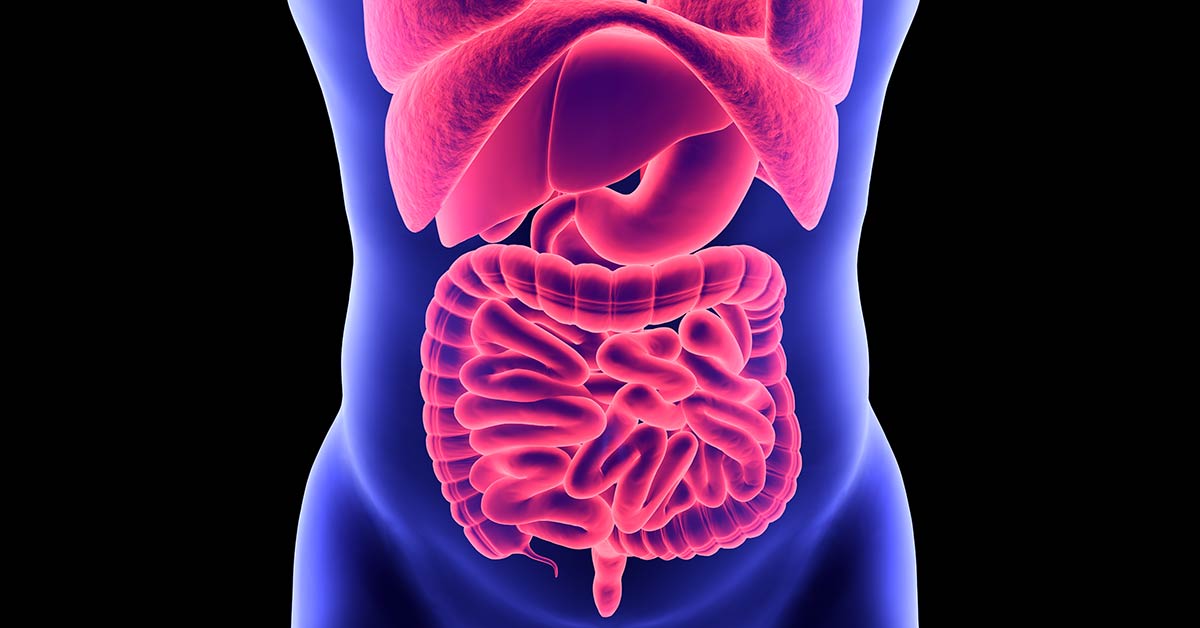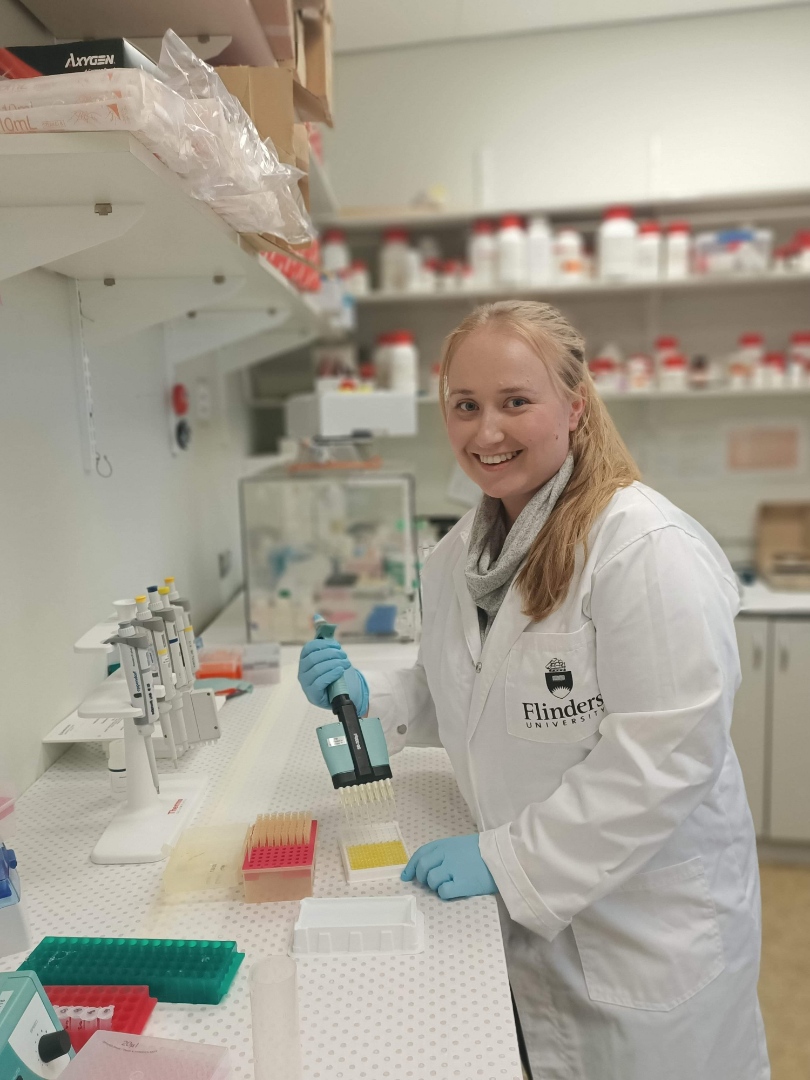
Serotonin in the gut is considered a regulator of normal gut function and is an important driver of metabolism and metabolic diseases including obesity and type 2 diabetes. Flinders University researchers have found that individual cells producing serotonin in the intestines change under high-fat diet conditions.
By delving deeper into metabolism problems, the research team has found that the nutrient sensing capacity of Enterochromaffin (EC) cells – which line the gastrointestinal tract and are the source of almost all serotonin in the body – have changed in mice under the influence of high‐fat diet‐induced obesity and metabolic disease.
Dr Alyce Martin is part of a Flinders University research group under the supervision of Professor Damien Keating that made this discovery, and their recently published paper in the journal Neurogastroenterology & Motility has been chosen as the stand-out article for the August issue and is the monthly feature for the journal’s podcast.
“Our newly published work builds upon previous work from our lab published during my PhD, showing that the EC cells which produce serotonin in the gut act as important sensory cells within their environment.” says Dr Martin. “It also builds upon our work in humans showing that circulating serotonin and duodenal EC cell numbers are increased in obese humans.”

Despite the known metabolic roles of gut-derived serotonin, the underlying causes of increased serotonin with obesity and diabetes remains unknown.
However, Dr Martin says the new research offers novel insights into the mechanisms by which functional changes to EC cells occur, which may contribute to the altered circulating serotonin seen with obesity and metabolic disease, and associated gastrointestinal disorders including gastroparesis and nausea.
“We’ve already shown that these cells have the ability to sense and release serotonin in response to select nutrients under healthy conditions, which is dependent upon their location within the gut,” says Dr Martin. “Now we have shown that nutrient sensing by these cells, as well as the number of cells, is impacted by diet in an obese, diabetic model.”
The study – Diet differentially regulates enterochromaffin cell serotonin content, density and nutrient sensitivity in the mouse small and large intestine, by Alyce Martin, Lauren Jones, Claire Jessup, Emily Sun and Damien Keating – has been published by the Wiley journal Neurogastroenterology & Motility (https://doi.org/10.1111/nmo.13869).
The new paper also builds on a significant study by Flinders researchers published in the Proceedings of the ³Ô¹ÏÍøÕ¾ Academy of Science in 2019, which showed that gut bacteria communicate with EC cells, to impact metabolism even under healthy conditions. This was the first evidence to highlight gut-derived serotonin as a pathway by which bacteria impact metabolism.
The activity of gut‐derived serotonin in these metabolic processes has direct implications of such metabolic disorders as obesity and type 2 diabetes.
Current additional work by the Flinders researchers involves looking at how serotonin from EC cells influences gut motility – also examining how these EC cells respond to mechanical stimulation and communicate with neurons in the gut as part of the gut-brain-axis.
“We are progressing on several fronts to understand the dynamic relationship that serotonin-producing EC cells have with their gut environment, to ultimately impact physiological processes such as gut function and metabolism,” says Dr Martin.








